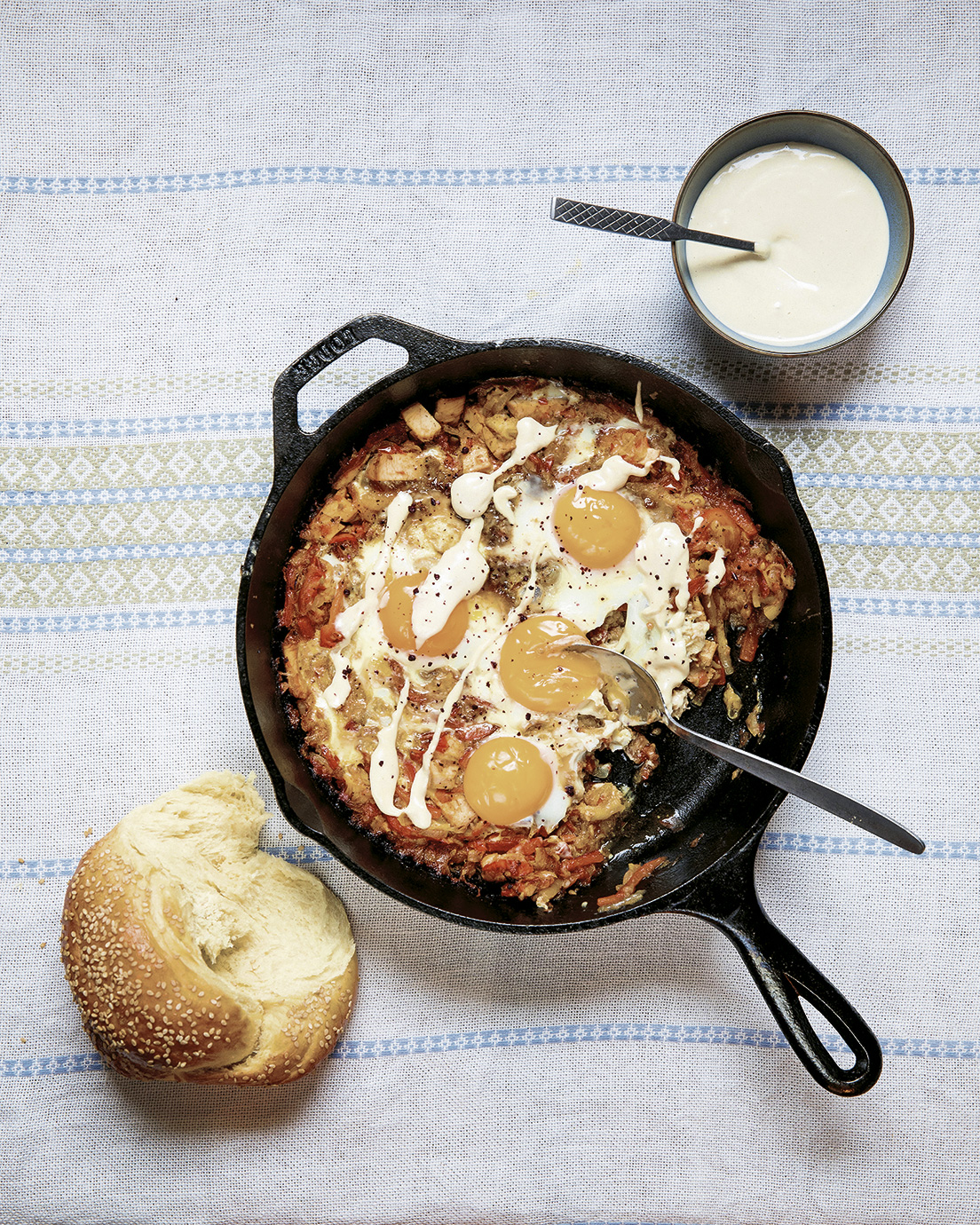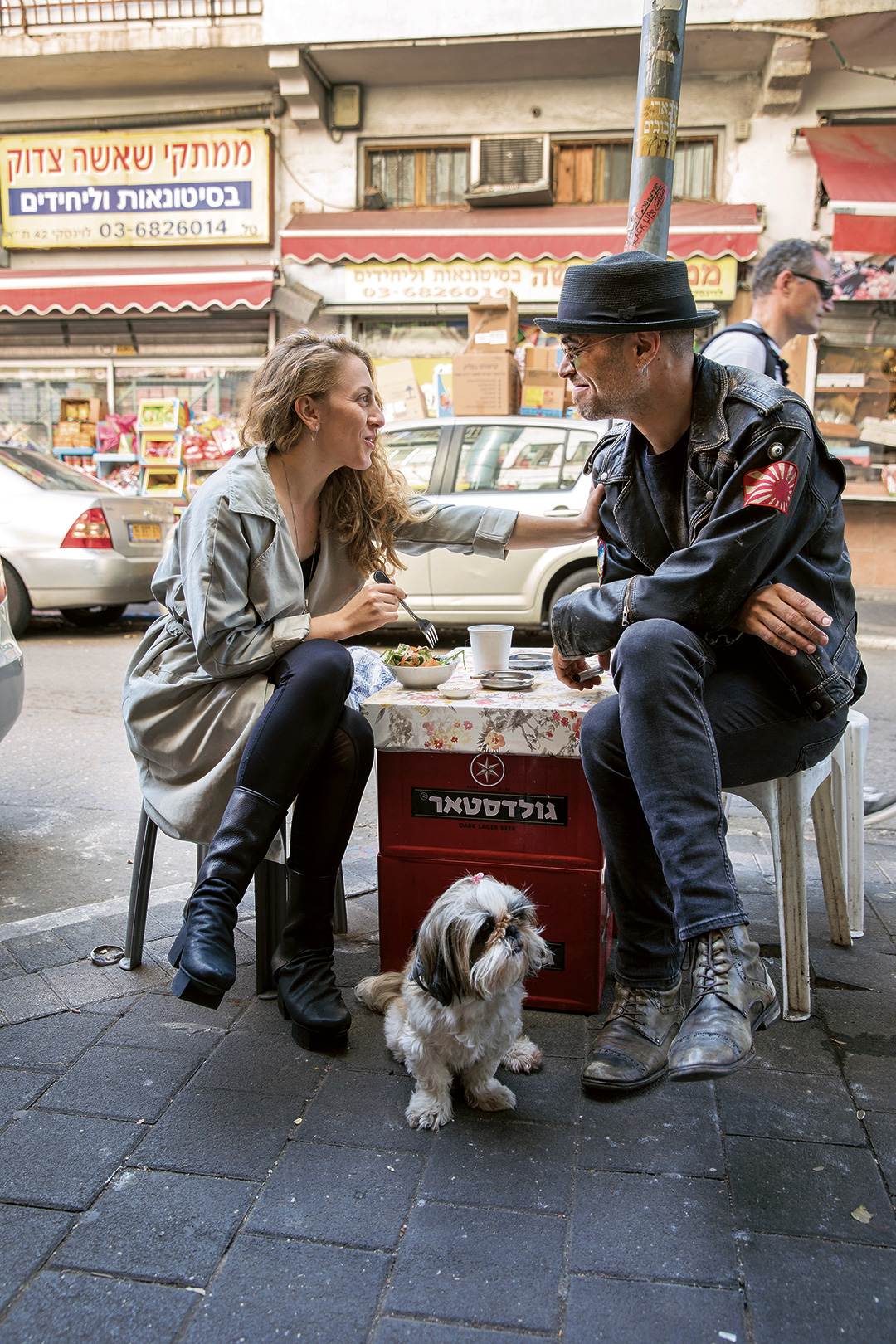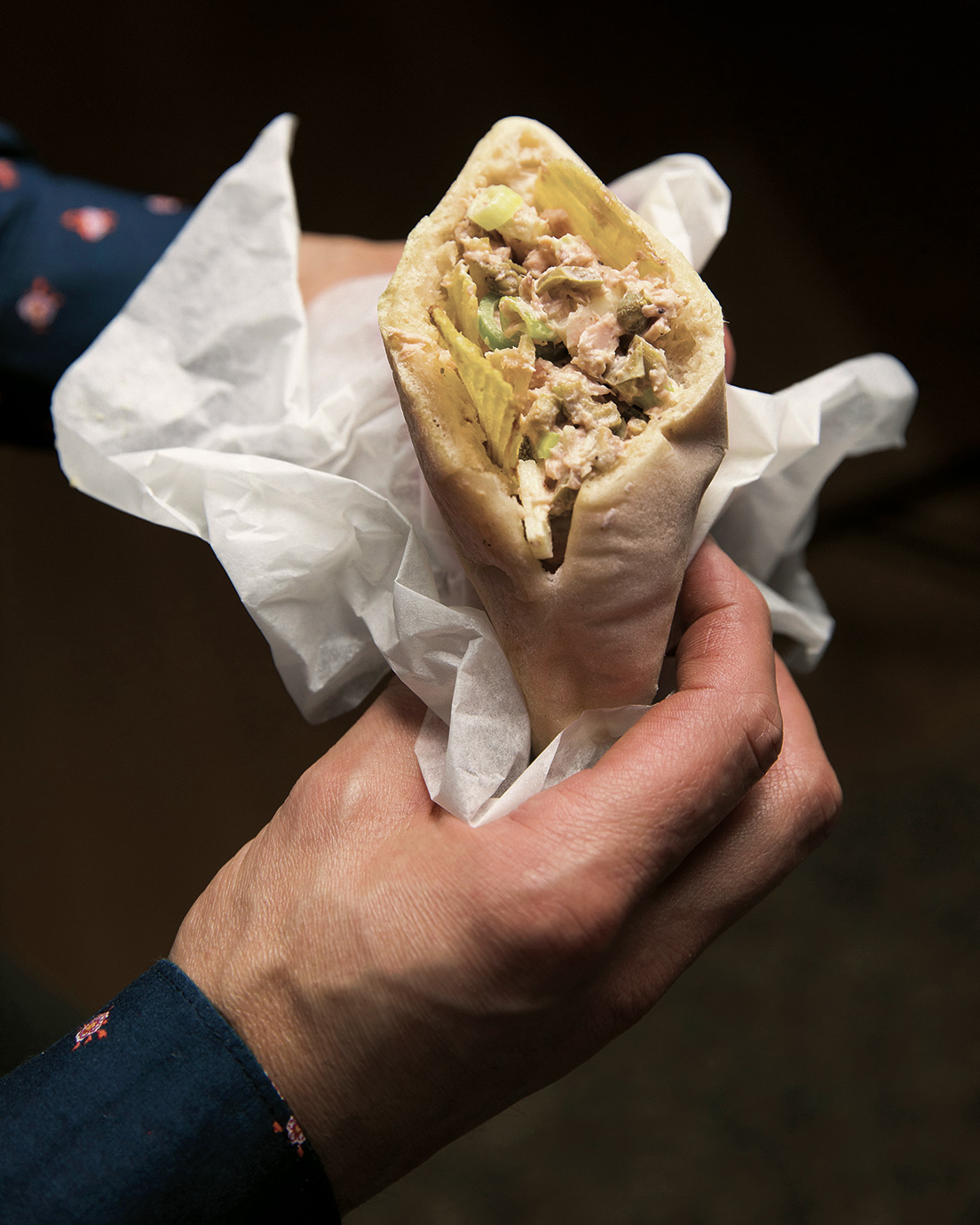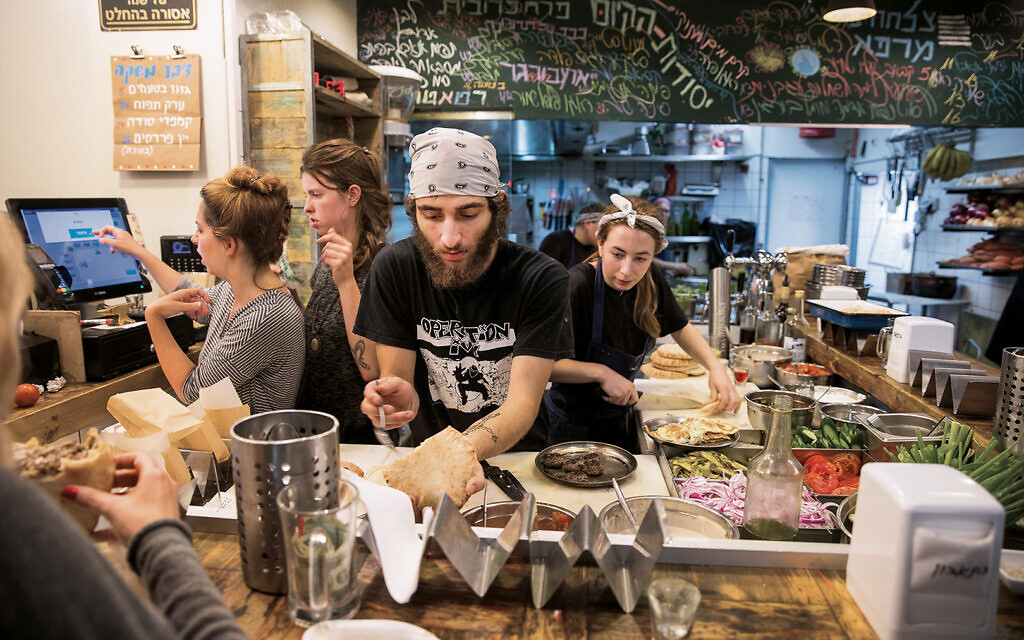Taste of Tel Aviv
Journalist Jigal Krant has loved Tel Aviv's food scene for decades, so it was a labour of love to write a cookbook on the vibrant city, which has just been published in Australia.
FOR Amsterdam-based food journalist and filmmaker Jigal Krant, Tel Aviv has been his second home for more than two decades, drawn to its vibrant food scene and unbridled zest for life.
When Krant embarked on a two-year project to produce a cookbook that was also a travelogue and photo essay of Tel Aviv, it immediately became a labour of love.
The result is TLV – Tel Aviv: Recipes and Stories From Israel, a 300-page book packed with photos, recipes and insights into the city’s favourite restaurants, street eats and chefs that was first published in Holland last year in Dutch. Melbourne publisher Smith Street Books has just printed an English version.

It features a smorgasbord of favourite Israeli foods such as hummus, tahini, falafel, shakshuka, baba ghanoush and sabich. Krant offers step-by-step recipes for readers who can’t drop into their favourite Tel Aviv eatery to buy the freshly made dishes.
“Nowhere is life celebrated more exuberantly than in Tel Aviv,” writes Krant in the preface to TLV.
“Nowhere can you eat better than in Tel Aviv. That rule applies first and foremost to the street, with its unsurpassed fast-food stalls serving hummus, falafel and sabich.
“In informal restaurants, the chefs put the rich eating traditions of Israel’s immigrant population to good use. The result is an inventive culinary fusion without rules or taboos.”
Krant observes that chefs in Tel Aviv feel free to innovate to their hearts’ content because they are not bound by any culinary tradition.
“In Israel it’s easy to eat out informally. Restaurants are accessible, noisy and not the exclusive domain of people over 30,” he writes.
“Anywhere that serves food stays open until late at night and kitchens take orders right up to the last minute.”

Early in the book Krant tackles Israel’s favourite snack, the falafel ball, whose history can be traced to biblical times. Introduced into Israel by Sephardi Jews, it’s cheap, nutritious and pareve.
Krant offers advice on making your own falafel balls, stressing the importance of soaking the chickpeas well in advance and using fresh instead of tinned chickpeas.
When it comes to hummus, Krant warns of the many poor dishes served outside Israel.
“They bear absolutely no resemblance to the divine dip you’ll find on every street corner in Tel Aviv,” he writes.
“Good quality, freshly made hummus needs only a dash of olive oil, a pinch of paprika and a sprinkling of chopped parsley – plus torn pieces of warm pita with which to scoop it up.”

Krant offers a step-by-step guide to making your own hummus, noting that the secret lies in using a large amount of tahini.
Visitors to Israel can easily find pita filed with falafel or shawarma, but another filling – sabich – is growing in popularity. It comprises crunchy eggplant, egg, several salads and half a dozen sauces. Traditionally sabich was eaten by Iraqi Jews on Shabbat, but today in Tel Aviv it is sold on every street corner.
Shakshuka has taken the world by storm in recent years, helped by the efforts of Israeli chef Yotam Ottolenghi. Introduced by North African immigrants to Israel, it was a popular dinner dish but after Israeli restaurants adopted it, shakshuka is also on the menu for breakfast and brunch.
Israeli salad is popular as a side dish and one that locals can’t do without, while baba ghanoush comprises roasted eggplant and tahini with a colourful garnish and also favoured as a salad.
During Tel Aviv’s hot summers, locals prefer to quench their thirst with freshly squeezed fruit juices, with the most popular being limona.
“This is not Hebrew for lemonade, as I wrongly assumed for years, but a contraction of its two main ingredients: limon (lemon) and nana (mint)” explained Krant, recommending freshly made over bottled.
Krant visits popular Israeli restaurants for favourite recipes including Eyal Shani’s Miznon, whose popularity has grown to New York, Paris, Vienna and Melbourne; Asaf Doktor’s acclaimed Ha’achim and his new, petite-sized Dok restaurant that uses only local ingredients; and TV chef Barak Yehezkeli’s new venture, Burek, which opens only one night a week in a secret location.
Krant is a culinary journalist, filmmaker, and radio producer based in the Netherlands. He has previously produced and presented the popular TV show The Kosher Dilemma in the Netherlands, in which he searched for the secrets of Jewish cuisine. TLV is his first cookbook.
TLV – Tel Aviv: Recipes and Stories From Israel by Jigal Krant, is published by Smith Street Books, $55 (rrp).
Get The AJN Newsletter by email and never miss our top stories Free Sign Up


comments